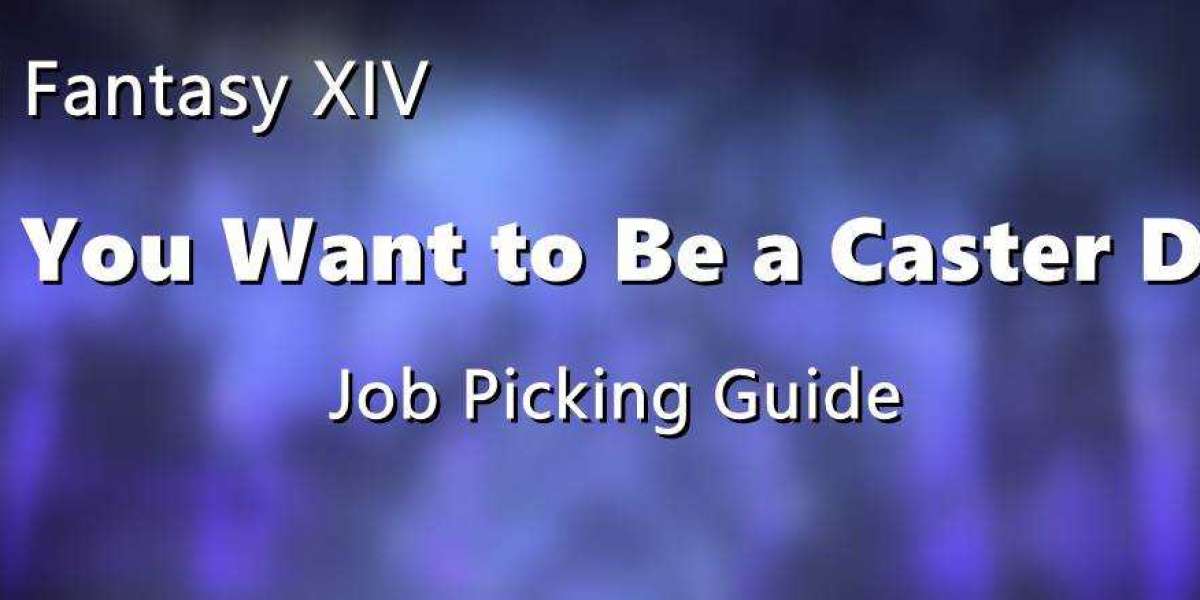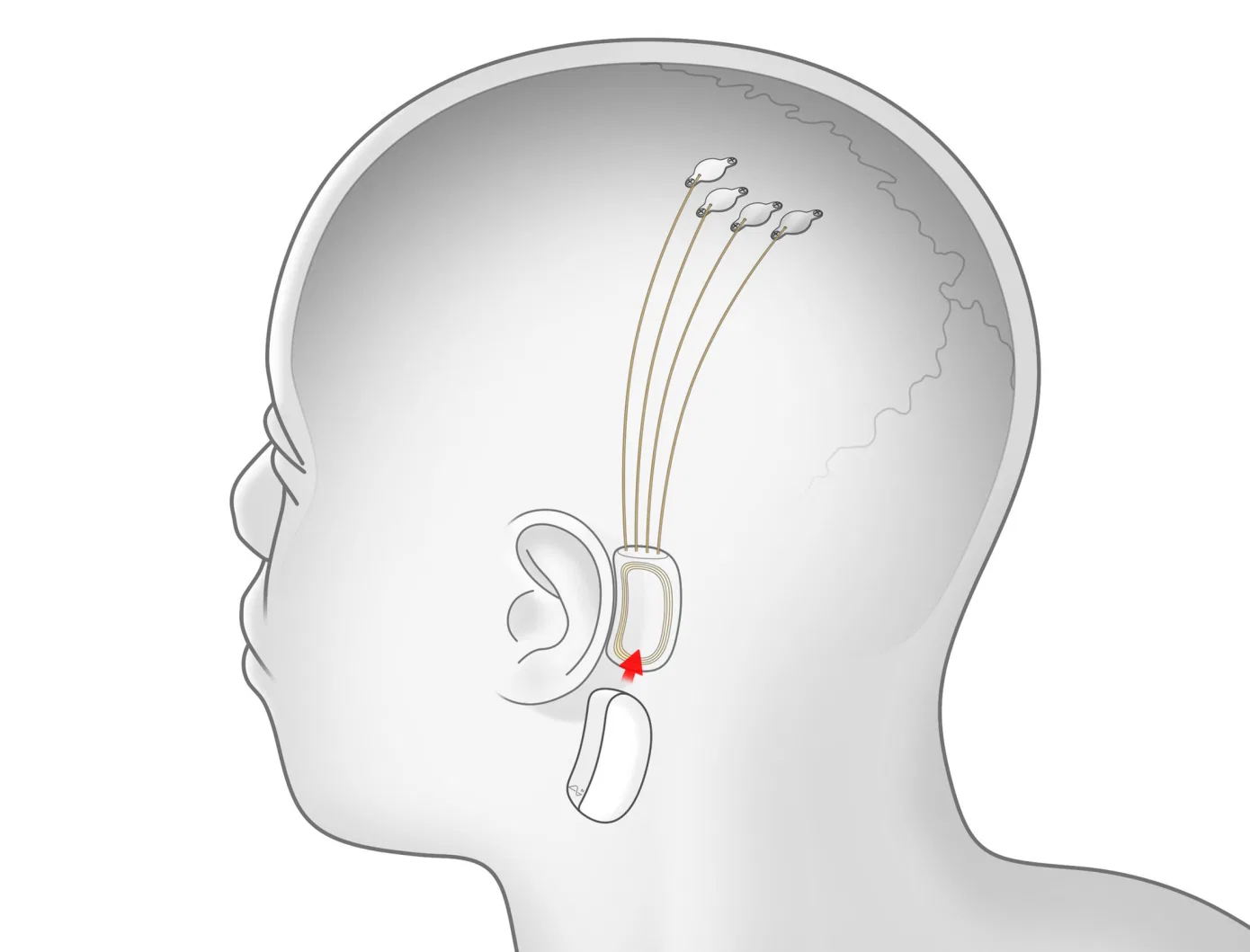This article originally appeared on MmoGah.
There are many jobs in Final Fantasy XIV, and it's hard for new players to pick jobs when they don't know the jobs. The jobs are in three roles, Tank, Healer, and DPS, and DPS includes Melee and Caster. Today, let's compare the three Caster DPS to help you pick the one you would enjoy.
Job picking is very important for new players because this depends on whether the new players keep playing or quit after trying. While talking about quitting, I suggest those who want to quit the game try all the roles before leaving. Like Healer, Tank, Melee DPS, Caster DPS, Crafting, Fishing, Gathering, PvP, and House decorating (You can buy some cheap FFXIV Gil to buy a House, an Apartment, or a Private Chamber and decorate it the way you want), etc. You might find something you enjoy eventually.
All Caster DPS in FFXIV
Caster DPS includes Black Mage, Summoner, Red Mage, and Blue Mage, but Blue Mage is a limited job that plays and levels very differently from the rest, so we will discuss the other three Caster DPS.
Players can unlock Summoner and Black Mage immediately on a new character.
Summoner's starting class is Arcanist.
Black Mage's starting class is Thaumaturge.
Players can unlock Red Mage by leveling any other job to level 50 and having the Stormblood expansion.
Summoner is the easiest job to play, and Black Mage is not just the most difficult Caster but the most challenging job in the entire game. Summoner is by far the most popular job, followed by Red Mage and Black Mage.
Players' numbers are often closely tied to difficulty, as many players prefer to play a job that doesn't overwhelm them when playing through difficult content, so this doesn't necessarily reflect how well-designed or fun a job is.
FFXIV Summoner
Summoner starts the game as the Arcanist, and Arcanist can also turn into Scholar, which means you can level a Summoner and a Scholar at the same time when you choose to start with Arcanist.

Summoners wield a book as their main weapon, and their playstyle revolves around an easy-to-follow rotation that cycles through various summoned creatures. You can think of each summoned creature as unlocking new abilities.
The rotation is straightforward once you understand what abilities the buttons on your Hotbar change into, and everything aligns perfectly with party buff windows and even certain raid mechanics. During the rotation, Summoners cycle through the two demi summons, Bahamut and Phoenix. Both summonses allow the caster temporary access to new abilities, which have to use before the timer runs out. After that, players can access the smaller arcanum summons: Ifrit, Titan, and Garuda. Each of these summonses unlocks different abilities, much like Bahamut and Phoenix did, except they are not on the timer.
The Summoner can freely choose between the summons depending on movement requirements, and it's supposed to use each one of them, including their abilities, before the next demi summon one minute later.
Titan unlocks an easy combo with no hard casts that you need to stand still for.
Garuda has five casts with a shortened recast time and one long cast that deals area of effect damage.
Ifrit has two hard casts and a dash, followed by the Summoner slapping the enemy with their book.
The job can be a little confusing initially because these abilities only appear on your Hotbar after using their respective summon.
Summoner has the fewest hard casts out of any Caster, allowing plenty of movement to dodge mechanics. One of the primary reasons to bring Casters to a party is their utility. Summoners have the ability Resurrection to revive a dead party member, and this can help healers maintain their MP balance and also provides an additional safety net for the party.
Another side of Summoner's utility is often overlooked by experienced players, which is their healing power, using the demi-summoned Phoenix grand surrounding healing effect for all nearby party members as well as a single target heal.
Healing is a standard benefit of Summoner, making it the highest healing DPS job in the game, and it can be helpful in all kinds of content, from solo to raiding. The job also has access to a party-wide damage buff called Searing Light, which can use every two minutes.
FFXIV Red Mage
Red Mage is one of the unique jobs, and it is fun to learn. As a Red Mage, thematically, you're balancing black and white magic.

The weapon for Red Mage is a rapier, which can use as both a Melee weapon and a Caster weapon. The job's gameplay revolves around balancing black and white Mana on the balance gauge by using spells of the respective kind. Using set spells, you accumulate each resource before spending it on a hard-hitting melee finisher combo.
Balancing black and white Mana is important when playing Red Mage because if either one becomes far more dominant, the other will accumulate much slower, resulting in a damage loss. That means the job has to pay more attention to resource management than Summoner, which adds another level of complexity.
Another unique aspect of Red Mage is the trait called Dualcast. When you are under the effect, your next spell will require no time to cast. To play Red Mage optimally, you will want to use a short cast to get the Dualcast, followed by a long cast to instantly cast it instead, and this gives Red Mage a unique feeling of a one-two punch mage. It also means that Red Mage has a high amount of movement available because they have two and a half seconds of movement after each full cast.
Once a Red Mage has accumulated enough black and white magic, they can spend it on the three-hit melee combo, followed by three instant casts at the highest level. There's plenty of wiggle room when the Red Mage uses this to avoid downtime during heavy movement mechanics. Additionally, with a little practice, it is possible to fit one melee finish or combo into the buff window, allowing more advanced players to do more damage, but it comes with added difficulties. However, not all Red Mage's spells align as neatly as those of Summoner's. With each two-minute window being slightly different, it requires more focus on the resources and cooldowns to maximize the job's damage potential.
Summoner's rotation falls in place naturally, but Red Mage requires a bit of work to keep everything aligned. The job has plenty of utility that every party would want. First of all, Red Mage has the ability for healing, which is a single target heal called Vercure that can use to save yourself or others in clutch situations. The job also has access to a resurrection ability called Verraise, available at level 64. While under the Dualcast effect, Red Mage can cast instant resurrections, which leads to Red Mage being able to revive players much more quickly than any other job, including Healers. Because of this, Red Mage is often jokingly referred to as Res Mage.
Like Summoner, Red Mage also has access to a party-wide damage buff called Embolden, which should be used on cooldown to improve the party's damage.
Lastly, Red Mage has access to Magick Barrier, a party-wide magic damage mitigation ability that also applies a healing increase buff, which can be helpful to minimize the impact of party-wide magic damage.
FFXIV Black Mage
Black Mage is what the game director Yoshida and South plays, and it's also the most challenging job in the game.

Black Mage uses a staff as its weapon, and unlike Summoner and Red Mage, it offers only pure destructive magic with no unique party utility at all, but it has the highest personal damage potential in the game.
Black Mage cycles through two states called Astral Fire and Umbral Ice, using abilities of the respective kind, either fire or ice, and each state lasts 15 seconds.
During Astral Fire, it can increase the damage of various fire abilities, which is when Black Mage deals most of its damage and expands all of its MP. On the other hand, Black Mage rapidly regenerates MP during Umbral Ice, leading to a playstyle where playing the job requires jumping between Astral Fire and Umbral Ice.
Compared to Summoner and Red Mage, Black Mage only has a few instant cast opportunities. So, players must plan around more carefully to avoid movement mechanics.
Having long cast times means Black Mage would love to stand still permanently if the mechanics permitted, but they're rarely able to do so. This problem is aggravated by the job's personal damage buff called Ley Lines, which creates a small circle. The Black Mage gains a substantial spell cast and reduces recast time inside it, and the field is immovable. As such, the Black Mage needs to plan the time of its use and the placement very carefully or risk being forced to move outside of it at a big damage loss.
These factors all make Black Mage fairly reliant on good positioning and knowledge of mechanics to plan the encounter out for optimal damage.
Using abilities such as Triplecast allows the instant casting three abilities in a row. The roll-action Swiftcast allows the immediate cast of the next spell, and the instant cast ability Xenoglossy allows Black Mage to move around way more than in previous expansions.
Black Mage also has access to the strongest movement ability called Aetherial Manipulation, which allows them to move to a target party member's side instantly, and the recast time is only 10 seconds short.
However, the base level of Black Mage is quite accessible. Beginner players shouldn't worry too much because there are no damage checks to be found anywhere, and the job is exceptionally hard to optimize. This is no concern to anyone while leveling.
Black Mage performs perfectly inside most content when simply following the standard rotation, and its skill expression is something that many players find intriguing. It's actually a good design.
It's a very slow start, but once abilities like Xenoglossy, Triplecast, and Astral Fire are available, Black Mage starts to shine. It's one of the most well-designed and fun jobs in the game.
Summary
With some broad knowledge of all the DPS Casters, we will move to the last part, a small summary of the jobs and who I recommend them to.
Summoner is amazing as a beginner job, not just as your first Caster but as your first job in the entire game. Its simple rotation lets Summoners get a grip on fight mechanics without worrying too much about the rotation.
Red Mage is a Caster with a unique design compared to the Casters we are used to from other games. It's slightly more difficult than Summoner and offers some additional optimization options while providing a similar utility with a focus on reviving party members.
Red Mage is a common choice for experienced players when learning new fights. For this reason, it is more flexible than Summoner and probably the better option in raids.
Black Mage is a job for anyone looking for a challenge. It offers more skill expression opportunities than any other job in the game. However, the base level of the job isn't impossible for beginner players to get grips with, and because of that, you shouldn't feel intimidated to try the job if you like the theme, but be prepared for a challenge and a slow start.
Actually, the best Caster DPS in the game is the one that you enjoy the most. If you play a class that you enjoy, you are going to be more willing and able to become better at it. A good player who enjoys their job is going to do far better.
Thank you for reading. I hope you find a suitable Caster DPS and enjoy playing Final Fantasy XIV.







